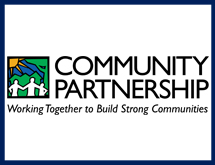Top Tips 2020: What Does High-Quality Child Care Look Like?
Article provided by Community Partnership of the Ozarks
The task of choosing the right child care program is difficult for any parent. Add in the struggle with seeking quality care in the midst of a pandemic and it can be nearly impossible. Six months ago, tuition, teachers, curriculum, and location would be at the top of many parents’ lists of items to consider. Now you need to add in vigilant sanitation and health precautions, small group sizes, and a host of new considerations. While these are very important, you should also keep in mind some other points that make the program a place where you can feel at ease in sending your children. The following are some suggestions you can consider in your search.
Don’t take your first impression of a child care program lightly: If you have reservations after touring a program, there is probably a good reason why. Continue with your search. However, once you have considered several programs, and you seem to have reservations with all the programs, you could be experiencing anxiety with placing your child in child care and trusting others to care for them in general. This is a normal feeling that most parents experience.
Cleanliness: During the pandemic, you might be required to tour after hours or virtually. It does add a level of mystery to the interactions, but might be an indication of the program’s care and precautions for those they serve. Take it as a good sign. As you are touring programs, observe how clean the facility looks. Check the floors, shelving, toys, counters, windows, mats, rugs, and carpets to see if they are kept clean and in good shape. Ask the teachers how often they clean these items and about the process of cleaning them.
Interaction: If you can observe the interaction between teachers and children, look for the following: Is the communication positive and effective? Are the teachers asking open-ended questions to the children? Open-ended questions are questions that require more than a “yes or no” answer. For example: Tell me about the picture you drew. Are the teachers giving the children time to solve their own problems and not jumping in too early to fix the problem?
Is there evidence in the classroom that shows an environment conducive to learning? Is there children’s artwork hung on the walls? Are there a variety of areas for play, such as a music center, science and math center, library center, block and construction center, and writing and art centers?
COVID-19 has increased the concerns parents face, as well as the challenge for providers to address the guidelines set by the CDC, the American Academy of Pediatrics, and the local health department to ensure everyone is protected. Here are some things to consider:
- Check with your child’s pediatrician if your child has any medical concerns or their immune system if compromised before deciding to enroll your child. Consider a home provider as a child care option, where group sizes are much smaller, and the traffic in and out is reduced.
- If you decide to enroll your child in faith-based or licensed center care, make sure the program has a plan in place if the center, your child’s room, or the city/county is required to quarantine or shelter in place.
- Check to be sure the child care program has a rigorous protocol for cleaning and disinfecting the environment, including handles and light switches, countertops, surfaces, and indoor and outdoor toys. Also, changing mealtime and rest time to reduce close contact should also be implemented. Finally, a strict process for health checks for children and staff is vital to reducing potential spread and keeping everyone safe.
These are trying times. Child care providers are essential and have been placed in a precarious position of keeping our economy going by providing an essential service. It is challenging to put their lives and businesses in jeopardy and still maintain a safe environment for children and staff. It is important to keep lines of communication open, sharing concerns, and remembering that this is new for all of us.
Many area child care providers are enrolled in Community Partnership of the Ozarks’ Educare and Infant Toddler Support Network programs, so they can stay up-to-date with current best practices and continued educational opportunities for staff while receiving guidance and support from experts in the field. Additionally, Community Partnership’s Early Care and Education Collaborative brings early childhood professionals and businesses concerned about the role of early childhood in our community together to work on critical issues.
To learn more, visit cpozarks.org/early-care-collaborative.

